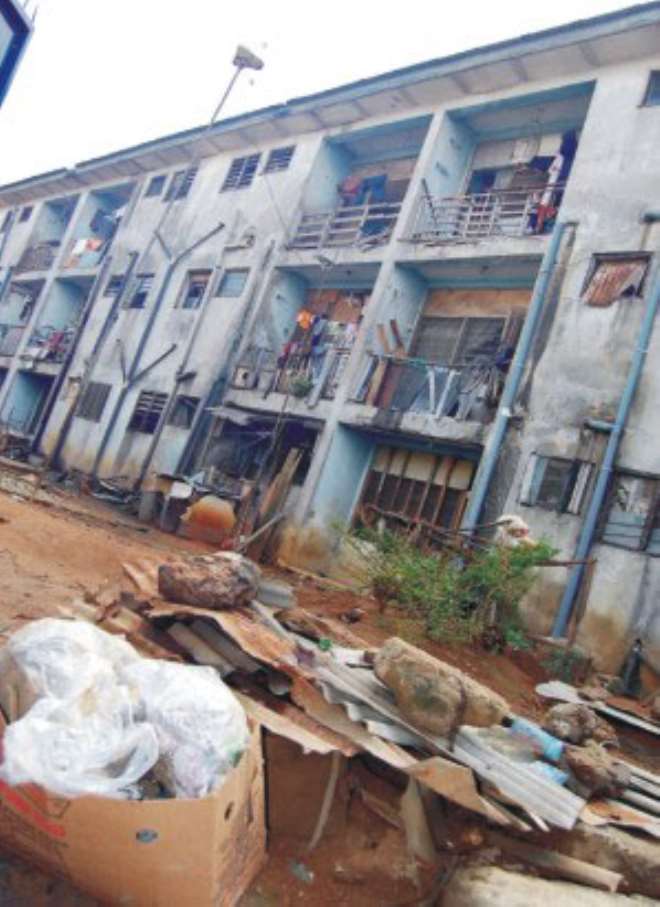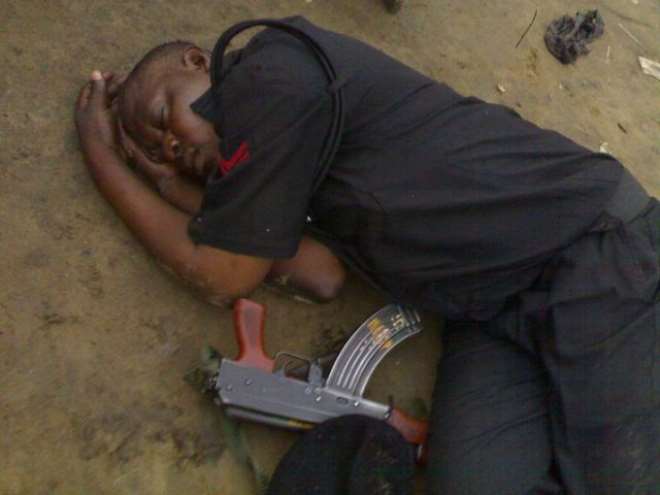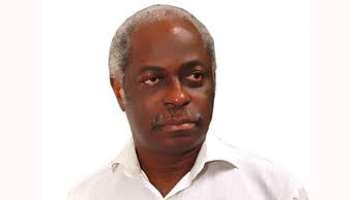The Problem With Nigeria Police Force
Funding and manpower
This is basically the Federal Government's responsibility and it determines the level of adequacy or preparedness of the Police to combat crimes. A top police officer told TheNEWS that it was not true that the Police hierarchy had not been putting forward what the force needs. “You ask for N20.00, government brings N10. Whereas, other areas are being properly funded. But the mistake is that if you don't fund security, you are wasting money on those other areas that you are funding because without security, those ones cannot stand,” he argued.
Another officer in Lagos reasoned that it was not enough to announce a N20 million budget, for example, but what N20m will buy is more important. In other words, he said if such money could buy only one armoured car, then that is the end of the story since there is a limit to what it can do in a vast territory.“What we are saying,” according to the top cop “is that the government should sit down and say I want 10 police officers, what does it cost?” He referred to 1999, when the government ordered that the Police should recruit 40,000 men every year for four years. He wondered why nobody ever asked what happened and why the programme was not implemented.
He explained: “It was not done because the money was not provided. By the time the Police hierarchy then sat down and said 40,000 policemen per year times four will cost XY Naira, the government dropped the programme. That's what killed the policy.”If that programme was implemented, analysts posited that this would have helped to purify the Police by easing off bad eggs and bringing in fresh ones.He maintained that there is no way an IGP will keep money without using it on what is necessary. “Go and check. It is either the money is not enough or the one budgeted for has not been translated into real money. You will go and tell the world that you are giving the IGP N5mn, but you have only released N2mn and yet the year is running to an end. What does he do? What will he tell his men? The government has not sat down to know what it wants to do about the security of the country. If you give one quarter of the budget to security, all will be well and it is not that one is exaggerating it,” he said.
Last August, President Jonathan blamed insecurity problems in the country on long years of underfunding of the Nigeria Police. To correct that, the government said it approved N79 billion as its contribution to the N1.5 trillion proposed by a committee set up to reform the Police. The committee is headed by Alhaji M. D. Yusuf, a former Inspector-General of Police. But it remains unclear if the money was released.Inadequate funding, as experts told this magazine, has direct negative impact on other factors that could make for an effective policing.
Equipment
An investigation by TheNEWS in February 2008 showed that the total number of arms used by the Nigeria Police was just over 90,000 with 92 million rounds of ammunition.
Six months before then, the magazine found out that the police had only 5,900 serviceable vehicles as against the over 30,010 recommended vehicular needs of the cops. “What you will find,” a top police officer said, “is that we have a shortfall of 24,051 vehicles. How can you effectively fight crime under this condition?”The Marine section, according to the magazine report then, had 371 boats out of which 108 were serviceable.
The Nigeria Police Force had a stock of 742 horses for patrols, mob and demonstration control as against the required 2,000, leaving a shortfall of 1,258. Moreover, they had 89 dogs, instead of 500 required.The worst of the situation is that in December 2007, the entire Nigeria Police had only four helicopters in its fleet, three of which were operational. One was reserved for use at Louis Edet House.However, the situation, in 2011, is worse. According to a source at the Force Headquarters, the entire force has only two functional choppers. “How then can you pursue robbers or terrorists by air?” he asked. The same senior police officer explained that the New York Police Department alone has more than 15 helicopters, while the Nigeria Police do not have helicopters for patrol.“We only have one or two that can be used for emergency. But there should be helicopters stationed in state capitals that can take off when there is problem. If you cannot give all the states, look at the volatile ones. We all know the volatile states. But by the time the government considers the cost, it just withdraws. That has always been the problem,” he added. A police officer, who had served with the United Nations, wants Nigerians to look at Nigerian policemen who are considered bad in Nigeria, but perform excellently when on foreign assignments. The reason, according to him, is that they make use of equipment they do not have at home abroad. “If you have a walkie talkie, you have a Land Rover to yourself, you have a good office, you are well kitted, why will you not do the job? It is not the man that will do the job, it is those appurtenances,” he reasoned.
There was a time in London when firemen protested that their vehicles were old because they had not been changed after a specific number of kilometres. A police top brass told this magazine in Ibadan: “If you see those vehicles they are complaining about, if you take them to some African countries, they will be dancing. But the government had to change those vehicles. If you see the vehicles, they are looking good, but there is a law there that after a specific number of kilometres, you can't use the vehicles to fight fire again. Those are the things that have to be done.” For the Police to go on a patrol, he argued, they must be at least two in a vehicle, unlike the trucks that Nigerian policemen drive.However, there are officials today who have two or three armoured vehicles in their convoy, another security official lamented, adding that Nigeria is one of the highest buyers of armoured vehicles in the world. Yet, a police station cannot rush to the rescue of anybody! He wondered: “Armed robbers are there, what do you want the policemen to go and do there? To just go there and get killed? When you are asking somebody to go and do a job, you must equip him to do the job. When you are asking a policeman to go and do a police job, he must have everything that he needs so that when others are running away, he can stand. The reason he is standing is not because he is a superman, but because he has the wherewithal to do that job. But Nigerians want the Police to pursue a snatched Jeep with a 504,” he lamented.
Arms and Ammunition
While Nigerian policemen rely on AK47s, bandits use more sophisticated weapons. Worse still, policemen outside the country make use of magnetic vests that can divert bullets from other parts of the body, but the Stone-Age ones used in Nigeria do not even go round.
Forensic Laboratory and Data Bank
We found out that former IGP, Tafa Balogun, set up a forensic laboratory at the Force Criminal Investigation Department, but it is nothing to write home about, an official said.That is why Nigerian cops would always invite foreign experts to help investigate sensitive cases. An example was when Engineer Funsho Williams, PDP gubernatorial aspirant in Lagos State, died in 2006. Two homicide detectives from the London Metropolitan Police were invited by Nigeria to help unravel the mystery. The stark contrast emerged the following day when the foreign cops joined their Nigerian counterparts at the home of Williams. The Nigerian homicide detectives were already at work with their archaic fingerprint machines. The British officers were surprised to find Nigerians using an analogue machine that was a long discarded version of what they brought. “What is this? Is this still in use here?” one of the officers blurted out in amazement.The foreign officers settled down and started sweeping the area of the crime. But by the time they finished, they were disappointed after collecting over 7,000 fingerprints at the scene of crime. This magazine reported: “The Nigerian cops should have cordoned off the area, so that only the fingerprints of the killers could be examined,” they said. But 7,000 fingerprints uncovered comprised those of sympathisers and officials of the SSS and policemen themselves! In exasperation, the foreign detectives left for the UK.
Vincent Akuta, a public commentator, suggested to the Police authorities to present a bill to the National Assembly which will make it a law for the Police to take the fingerprints of every suspected criminal. In his words: “The Police should start taking fingerprints. As a matter of urgency, they should build a central database where genetic materials can be stored. This project is possible. It's not rocket science.” Akuta challenged security experts, IT experts and other stakeholders to come up with a system for taking and storing DNA materials. Another top police officer lamented to this magazine that there are many forensic doctors in the Police, but no forensic laboratory. In his words: “If you give the Police N20mn in a year and forensic lab alone is going to take N10mn, are we not wasting our time? So, it is the same issue of funding.”
Intelligence
Intelligence is another aspect of policing that needs a lot of financial backing. To prevent something you have foreseen from happening, you need some equipment, an intelligence officer told this magazine. As he put it: “You want to capture the behaviour of a man without him knowing that you have done it, it is money. You want to go to NICON, you have heard that one big suspect is going to lodge there, you must give that policeman money to lodge in that hotel before that suspect arrives there. If the man is going to be at the presidential lounge, the policeman must be there too. The policeman must be well dressed to fit into the environment.”
Close Circuit Television/Camera
This is what the advanced countries use in combating crimes. A good example how effective the gadget could be was how the 7 July 2005 London bombers were captured on CCTV at Luton train station. If not that they died in the explosion, they would have been arrested. On the day of the attacks, CCTV camera showed that all four had travelled to Luton, Bedfordshire by car, then to London by train.It was this gadget and effective monitoring that the Metropolitan Police in London used in reducing crime rate in Brixton in 2004. Before the Police introduced Operation Trident Swoop, many whites were relocating from the predominantly black community. By the time the operation succeeded, they returned in droves, thanks to effective gadgets and policing.In Nigeria, however, the Police do not have such gadgets. At a point, the Lagos State government spent over N60mn to put the gadgets at strategic places in Lagos, but as a resident lamented, “where is the electricity to power them?”
Education/Quality of Personnel
When Senator Babafemi Ojudu, former Managing Editor of this magazine, was detained in 1998, a police officer asked him how, in spite of the fact that the company's Managing Director/Editor-in-Chief, Bayo Onanuga, was outside the country and the company's premises was under siege, the magazine still managed to come out. The detainee said, it was through email. “What is email?” the officer asked.
In fact, we ran into an Assistant Commissioner of Police who does not have an email address! At the highest echelon of the Police, from the IG to the Deputy IGs, only a couple are graduates.
However, some analysts argued that it is the nature of the educational system in the country that reflects on the Police, just like other areas.
Welfare
Investigations by this magazine revealed that when a policeman dies in active service, his family is given a compensation of N100,000. In fact, a widow collapsed after she was told that someone else had collected her late husband's entitlement!
On the other hand, the salary is nothing to write home about. As a senior cop told TheNEWS: “You post a policeman from Lagos to Jos on special duty, nothing is given to him. He doesn't know anybody there and you are saying he should go and perform. How will he do it?” That is why such cops on transfer sleep in their offices or inside accidented cars at police stations.”
The barracks and police stations are even worse. Policemen live in decrepit condominiums. As another officer told the magazine: “All these things must tell, whether one wants to admit it or not. If two people leave the university, each with a degree in Economics, and one goes to the Police while the other goes to the Central Bank, in 10 years you would see the difference, the gap in their standard of living. What's the difference? Why should the man who joined the Police come out a wretched man? And it happens like that. Go and take the statistics, you will see it,” he said. The cop waved off the criticism about the policemen taking bribes, because N20 cannot take anybody anywhere. “What can anybody do with N20?” he asked
He challenged all Nigerians to look at the political setting, where somebody in the National Assembly is earning more than the Commissioner of Police, more than the IG; local government councillors earning more than the DPO. “But the man in charge of security (Police) is supposed to be on top because it is when the man is okay that everybody will be okay,” he submitted.
Corruption
It is common knowledge that cops collect N20, N50 and N100 on the roads. But when former IG, Tafa Balogun, was arrested for corruption, it became clear that corruption runs through the rank and file of the Police.
– Additional reports by: Oluokun Ayorinde, Oluwole Adeboye, Ben Adaji, Femi Adi, Maduabuchi Nmeribeh and Folarin Ademosu

Latest News
-
 "No Matter What You're Facing, Don't Give Up" - F
"No Matter What You're Facing, Don't Give Up" - F -
 Fire Outbreak: Toyin Abraham Sends Solidarity Mess
Fire Outbreak: Toyin Abraham Sends Solidarity Mess -
 "I'm Sorry, It's My Birthright" - Davido Slams Tr
"I'm Sorry, It's My Birthright" - Davido Slams Tr -
 "We Will Bounce Back Bigger And Better" - Iyabo Oj
"We Will Bounce Back Bigger And Better" - Iyabo Oj -
 "Afrobeats Artistes' Collaboration Would Increase
"Afrobeats Artistes' Collaboration Would Increase -
 "I'm Sure That I'm Deeply Loved" - Adesua Left Em
"I'm Sure That I'm Deeply Loved" - Adesua Left Em -
 "Showing Affection To Women Makes You A Real Man"
"Showing Affection To Women Makes You A Real Man" -
 "High Cost Of Living And Insecurity Are Ravaging N
"High Cost Of Living And Insecurity Are Ravaging N -
 "I'll Keep Expressing My Art From My Heart" - Kam
"I'll Keep Expressing My Art From My Heart" - Kam -
 Mr Macaroni Completes Advanced Acting For Camera C
Mr Macaroni Completes Advanced Acting For Camera C














